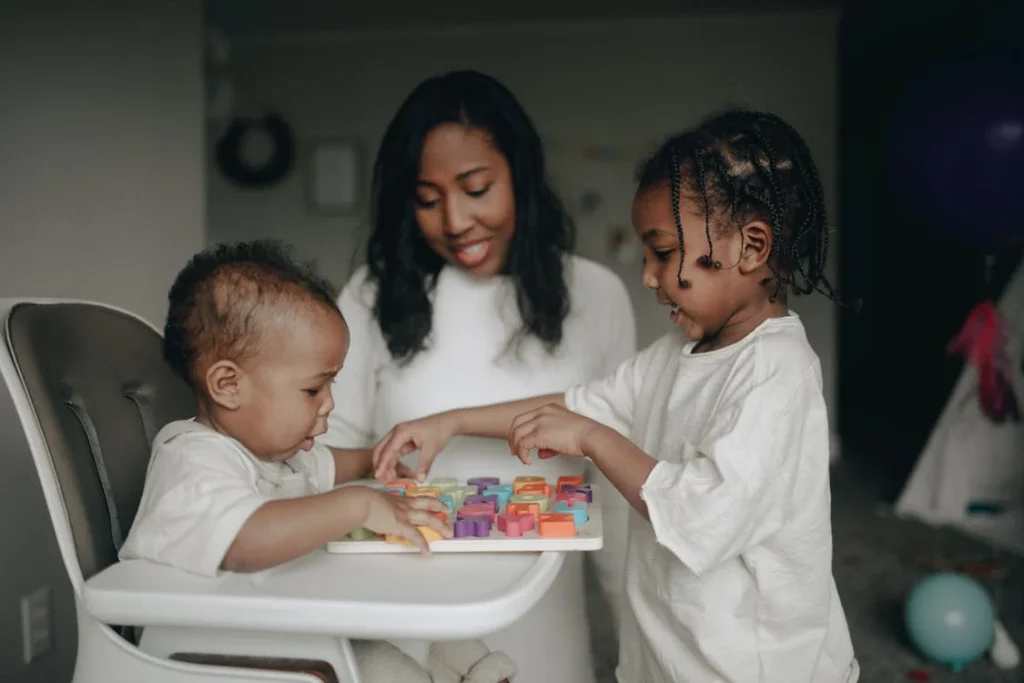Parenting is a journey filled with challenges, growth, and countless rewards. One of the most effective approaches to fostering a healthy and happy family environment is positive parenting. This method focuses on building strong emotional bonds with your child through encouragement, empathy, and clear communication.

In this article, we’ll explore the essentials of positive parenting and provide actionable tips to help you strengthen the relationship with your child.
What is Positive Parenting?
Positive parenting is an approach that prioritizes the emotional well-being and development of children through respectful communication, understanding, and encouragement. Instead of relying on punishment or strict discipline, positive parenting encourages cooperation, problem-solving, and emotional regulation. The goal is to create a supportive environment where children feel safe, valued, and understood.
The Benefits of Positive Parenting

Positive parenting has numerous benefits for both parents and children, including:
- Strengthened Emotional Bonds: By focusing on empathy and open communication, positive parenting builds trust and deepens the emotional connection between parent and child.
- Better Behavior: Children who feel understood and supported are more likely to cooperate and demonstrate positive behavior. Instead of acting out for attention, they feel confident and secure.
- Improved Emotional Regulation: Positive parenting helps children develop emotional intelligence, teaching them how to manage their emotions in healthy ways. This is especially important during moments of frustration or conflict.
- Enhanced Self-Esteem: When children are raised in an environment of encouragement and positive reinforcement, their self-esteem and confidence naturally grow.
- Fewer Power Struggles: With clear communication and mutual respect, you can reduce the frequency of power struggles and conflicts, creating a more harmonious family dynamic.
Essentials of Positive Parenting
Here are some core principles of positive parenting that you can start implementing today:

- Practice Active Listening
One of the key elements of positive parenting is listening to your child. When your child speaks, give them your full attention. This shows that you value their thoughts and emotions. Repeat back what they’ve said to confirm understanding and ask questions to clarify. Active listening helps your child feel heard and validated, strengthening the parent-child bond. - Set Clear Boundaries with Empathy
Positive parenting doesn’t mean there are no rules—it means setting clear and consistent boundaries while acknowledging your child’s feelings. For example, instead of simply saying “no,” explain why the behavior isn’t acceptable and offer alternatives. When children understand the reasoning behind limits, they are more likely to respect them. - Encourage Positive Behavior
Positive reinforcement is an effective tool in encouraging good behavior. Instead of focusing on what your child is doing wrong, highlight and praise what they’re doing right. This can be as simple as acknowledging when they’ve completed a task or displayed kindness. Over time, this helps children develop intrinsic motivation to behave well. - Be a Role Model
Children learn by example, so it’s important to model the behavior you want to see. Show kindness, patience, and understanding in your own actions. When children see their parents practicing positive behavior, they are more likely to mimic it. - Stay Calm During Conflicts
Conflicts and tantrums are inevitable, but how you respond can make all the difference. Instead of reacting with anger or frustration, try to stay calm and help your child navigate their emotions. Use calming techniques like deep breathing, and guide them through their feelings with empathy and patience. This teaches them how to manage their emotions effectively. - Foster Independence
Positive parenting encourages children to become independent problem-solvers. Instead of immediately solving problems for them, give them the tools and guidance they need to resolve conflicts or complete tasks on their own. This builds confidence and teaches critical life skills.

Building Strong Bonds
At the heart of positive parenting is the desire to build strong, loving bonds with your child. These bonds are nurtured through consistent, meaningful interactions. Here are a few additional ways to strengthen your connection with your child:
- Spend Quality Time Together: Set aside time each day to engage in activities your child enjoys. Whether it’s reading, playing, or simply talking, this time reinforces your relationship.
- Express Love and Affection: Regularly tell your child you love them and show affection through hugs, kind words, and thoughtful gestures. Physical and emotional affection is crucial for building a strong bond.
- Be Present: Put away distractions like phones or work when you’re with your child. Being fully present in the moment shows that you value your time together.
Conclusion
Positive parenting is about creating an environment where your child feels safe, respected, and loved. By practicing active listening, setting empathetic boundaries, and fostering positive behavior, you can build a strong, lasting bond with your child. Parenting isn’t without its challenges, but with a positive approach, you can guide your child through the ups and downs of life with confidence and compassion.

